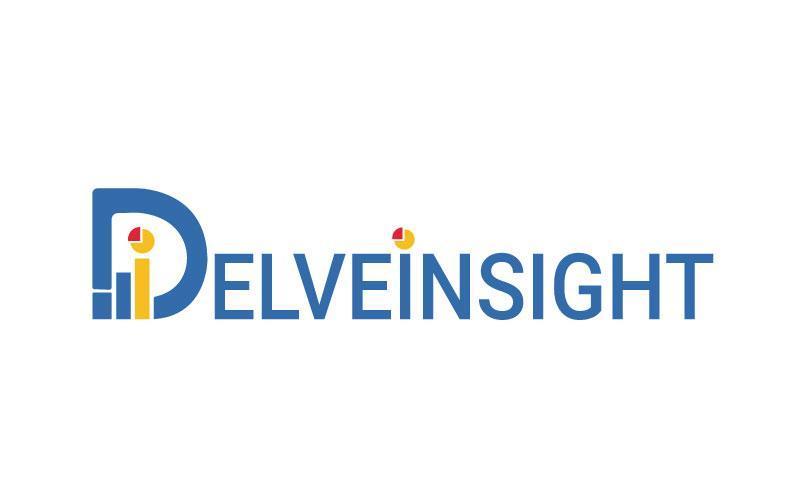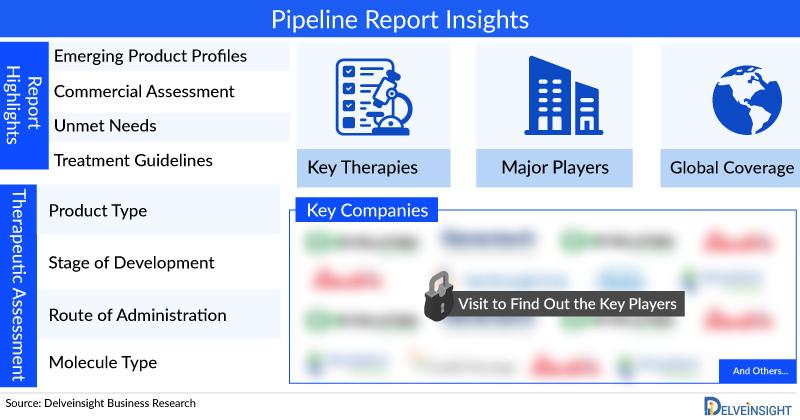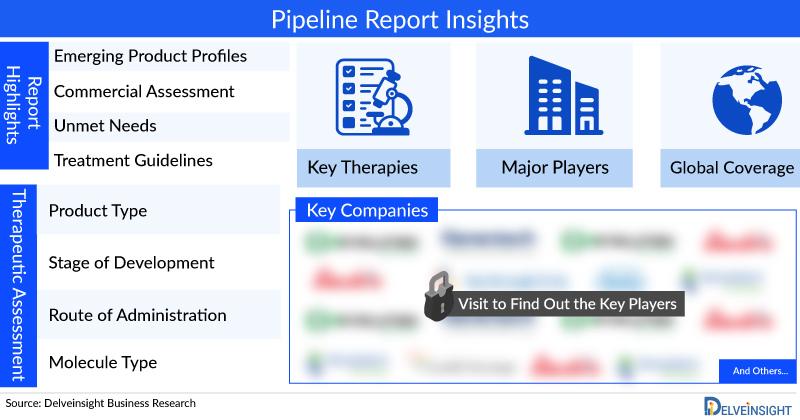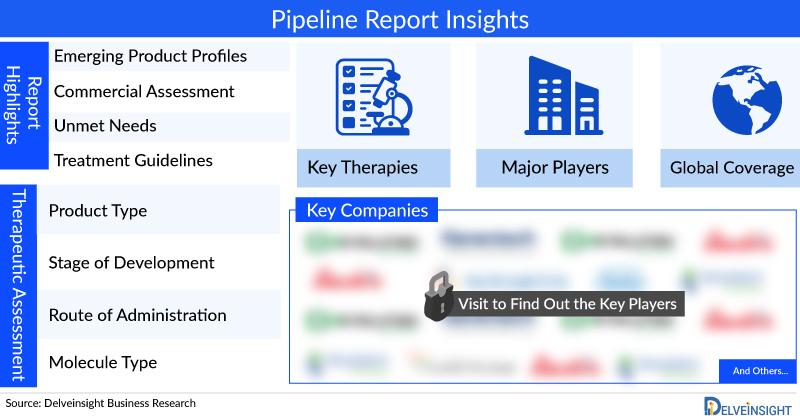Press release
Leishmaniasis - Pipeline Insight, 2025: Advancing Antiparasitic Innovation Amidst Growing Global Health Focus | DelveInsight
Leishmaniasis, a neglected tropical disease caused by protozoan parasites of the genus Leishmania, remains a serious global health concern, especially in endemic regions across Asia, Africa, South America, and the Middle East. With high morbidity, limited treatment options, and growing resistance to traditional therapies like pentavalent antimonials, the need for novel, effective, and safer therapies has become more urgent than ever.DelveInsight's "Leishmaniasis - Pipeline Insight, 2025" profiles more than 3+ pipeline candidates in development for cutaneous, visceral, and mucocutaneous forms of the disease. The landscape includes promising small molecules, immunotherapies, and repurposed drugs targeting parasite metabolism, immune modulation, and host-pathogen interactions. Leading the research front are companies and organizations like GSK, DNDi (Drugs for Neglected Diseases Initiative), IDRI, MedinCell, and Novartis, among others.
The report highlights ongoing clinical trials, innovative combination therapies, oral drug candidates, and injectable depot formulations designed to enhance access, compliance, and efficacy, particularly in resource-limited settings.
As global initiatives prioritize the elimination of leishmaniasis through improved treatment and surveillance, the therapeutic pipeline reflects a renewed momentum, moving toward safer, shorter, and more targeted treatment regimens to transform outcomes for millions affected globally.
Interested in learning more about the current treatment landscape and the key drivers shaping the leishmaniasis pipeline? Click here: https://www.delveinsight.com/report-store/leishmaniasis-pipeline-insight?utm_source=openpr&utm_medium=pressrelease&utm_campaign=jpr
Key Takeaways from the Leishmaniasis Pipeline Report
• DelveInsight's leishmaniasis pipeline analysis depicts a strong space with 2+ active players working to develop 3+ pipeline drugs for leishmaniasis treatment.
• The leading leishmaniasis companies include GlaxoSmithKline, Novartis Pharmaceuticals, and others are evaluating their lead assets to improve the leishmaniasis treatment landscape.
• Key leishmaniasis pipeline therapies in various stages of development include GSK3494245, LXE408, and others.
• As of April 2025, a clinical trial is underway at the University of Liverpool and the NHS Liverpool Clinical Research Facility to evaluate DNDI‐6899, another novel oral therapy for visceral leishmaniasis, aiming to improve accessibility and simplify treatment delivery.
• In April 2024, DNDi and partners initiated a Phase II study in Ethiopia investigating LXE408, an oral drug candidate for visceral leishmaniasis, designed to be safer, transportable, and more accessible than current injectable regimens
Request a sample and discover the recent breakthroughs happening in the leishmaniasis pipeline landscape at https://www.delveinsight.com/report-store/leishmaniasis-pipeline-insight?utm_source=openpr&utm_medium=pressrelease&utm_campaign=jpr
Leishmaniasis Overview
Leishmaniasis is a neglected tropical disease caused by protozoan parasites of the genus Leishmania, transmitted to humans through the bite of infected female phlebotomine sandflies. The disease manifests in three primary forms-visceral leishmaniasis (VL), cutaneous leishmaniasis (CL), and mucocutaneous leishmaniasis (MCL)-each varying in severity and clinical presentation. Visceral leishmaniasis, also known as kala-azar, is the most severe form and can be fatal if left untreated, while cutaneous leishmaniasis leads to skin lesions and mucocutaneous leishmaniasis affects mucous membranes of the nose, mouth, and throat.
Leishmaniasis is endemic in over 90 countries, particularly in tropical and subtropical regions of Asia, Africa, the Americas, and southern Europe. The disease primarily affects impoverished communities with limited access to healthcare, making timely diagnosis and treatment challenging. Traditional treatments include pentavalent antimonials, amphotericin B, and miltefosine, but issues such as toxicity, resistance, and logistical barriers limit their widespread use.
In recent years, efforts to develop safer, oral, and more accessible therapies have accelerated. Innovations from organizations like the Drugs for Neglected Diseases initiative (DNDi) and emerging oral candidates like LXE408 and DNDI‐6899 are shaping a more hopeful treatment landscape. With increasing global health attention and partnerships driving R&D, the future outlook for effective and patient-friendly therapies in leishmaniasis is progressively improving.
Find out more about leishmaniasis medication at https://www.delveinsight.com/report-store/leishmaniasis-pipeline-insight?utm_source=openpr&utm_medium=pressrelease&utm_campaign=jpr
Leishmaniasis Treatment Analysis: Drug Profile
LXE408: Appili Therapeutics
LXE408 is a first-in-class, parasite-selective proteasome inhibitor demonstrating potent and consistent activity against all kinetoplastid parasites, including Leishmania donovani and Leishmania infantum, the primary causative agents of visceral leishmaniasis. It also shows efficacy against other kinetoplastid diseases such as Chagas disease (T. cruzi) and human African trypanosomiasis (T. brucei). Safety data from healthy volunteer studies indicate that LXE408 is well-tolerated across all tested doses (up to 600 mg single and multiple doses). The drug is currently in Phase II clinical development for the treatment of visceral leishmaniasis.
Learn more about the novel and emerging leishmaniasis pipeline therapies at https://www.delveinsight.com/report-store/leishmaniasis-pipeline-insight?utm_source=openpr&utm_medium=pressrelease&utm_campaign=jpr
Leishmaniasis Therapeutics Assessment
By Product Type
• Mono
• Combination
• Mono/Combination.
By Stage
• Late-stage products (Phase III)
• Mid-stage products (Phase II)
• Early-stage product (Phase I) along with the details of
• Pre-clinical and Discovery stage candidates
• Discontinued & Inactive candidates
By Route of Administration
• Oral
• Intravenous
• Subcutaneous
• Parenteral
• Topical
By Molecule Type
• Monoclonal Antibody
• Peptides
• Polymer
• Small molecule
• Gene therapy
Scope of the Leishmaniasis Pipeline Report
• Coverage: Global
• Key Leishmaniasis Companies: GlaxoSmithKline, Novartis Pharmaceuticals, and others.
• Key Leishmaniasis Pipeline Therapies: GSK3494245, LXE408, and others.
Dive deep into rich insights for drugs used for leishmaniasis treatment, visit: https://www.delveinsight.com/report-store/leishmaniasis-pipeline-insight?utm_source=openpr&utm_medium=pressrelease&utm_campaign=jpr
Table of Contents
1. Introduction
2. Executive Summary
3. Leishmaniasis Pipeline: Overview
4. Analytical Perspective In-depth Commercial Assessment
5. Leishmaniasis Pipeline Therapeutics
6. Leishmaniasis Pipeline: Late-Stage Products (Phase III)
7. Leishmaniasis Pipeline: Mid-Stage Products (Phase II)
8. Leishmaniasis Pipeline: Early Stage Products (Phase I)
9. Therapeutic Assessment
10. Inactive Products
11. Company-University Collaborations (Licensing/Partnering) Analysis
12. Key Companies
13. Key Products
14. Unmet Needs
15. Market Drivers and Barriers
16. Future Perspectives and Conclusion
17. Analyst Views
18. Appendix
Contact Us:
Jatin Vimal
jvimal@delveinsight.com
+14699457679
Healthcare Consulting
https://www.delveinsight.com/consulting-services
About DelveInsight
DelveInsight is a leading Business Consultant and Market Research firm focused exclusively on life sciences. It supports Pharma companies by providing comprehensive end-to-end solutions to improve their performance. Get hassle-free access to all the healthcare and pharma market research reports through our subscription-based platform, PharmDelve.
This release was published on openPR.
Permanent link to this press release:
Copy
Please set a link in the press area of your homepage to this press release on openPR. openPR disclaims liability for any content contained in this release.
You can edit or delete your press release Leishmaniasis - Pipeline Insight, 2025: Advancing Antiparasitic Innovation Amidst Growing Global Health Focus | DelveInsight here
News-ID: 4090228 • Views: …
More Releases from DelveInsight

wsdfghj
asdfgh
asdfg
asdfg…

PH-ILD Market Size in the 7MM was ~USD 3 Billion in 2024 and is projected to inc …
DelveInsight's "Pulmonary Hypertension associated with Interstitial Lung Disease Market Insights, Epidemiology, and Market Forecast - 2034" report delivers an in-depth understanding of PH-ILD, historical and forecasted epidemiology, as well as the PH-ILD market trends in the United States, EU4 (Germany, France, Italy, and Spain), the United Kingdom, and Japan.
Discover Key Insights into the Pulmonary Hypertension associated with Interstitial Lung Disease Market with DelveInsight's In-Depth Report @ Pulmonary Hypertension associated with…

Sensorineural Hearing Loss Clinical Trials Analysis 2025: Emerging Regenerative …
DelveInsight's "Sensorineural Hearing Loss Clinical Trials Analysis, 2025" describes a rapidly evolving pipeline targeting both restoration of inner-ear structures and symptomatic improvement. Ongoing programs span hair cell regeneration via small molecules and biologics, AAV- and non-viral gene-replacement or gene-editing strategies for monogenic deafness, cell-based therapies (supporting synaptic reconnection), and cochlear neuromodulation advancements to augment residual hearing. Trials increasingly pair novel delivery methods (e.g., intracochlear, round-window) with precision patient selection based…

Cell and Gene Therapy in Parkinson's Disease Clinical Trials Analysis 2025: Dise …
DelveInsight's "Cell and Gene Therapy in Parkinson's Disease - Clinical Trials Analysis, 2025" highlights a diversified development landscape pursuing symptomatic relief and disease modification. Programs include dopamine-restorative cell implants, neuroprotective gene therapies targeting α-synuclein aggregation or neuroinflammation, and circuit-targeted gene delivery to rebalance basal ganglia networks. Trials incorporate advanced delivery (stereotactic infusion), standardized imaging and molecular biomarkers, and combination strategies pairing cell/gene therapy with neuromodulation.
Pivotal and late-phase trials focus on…
More Releases for Leishmania
Leishmaniasis Pipeline Insight 2025: Emerging Drugs, Novel Antiparasitic Approac …
DelveInsight's "Leishmaniasis - Pipeline Insight, 2025" highlights over 3+ drugs in development for leishmaniasis, a neglected tropical disease caused by Leishmania parasites and transmitted through sandfly bites. Despite being endemic in more than 90 countries, treatment options remain limited, with toxicity, resistance, and access issues affecting the leishmaniasis treatment market. The growing research focus on safer, more effective, and affordable therapies underscores the urgent unmet needs in endemic regions.
The leishmaniasis…
The Role of Novel Antibodies in Infectious Disease Control
The control of infectious diseases has been revolutionized by the development of novel antibodies. These innovative molecules are designed to specifically target pathogens, offering a more precise and effective approach to treatment and prevention. Novel antibodies have shown promise in combating a wide range of infectious agents, including bacteria, viruses, and parasites, by neutralizing pathogens, enhancing immune responses, and preventing infections.
Download Multispecific & Cancer Combination Report:
https://www.kuickresearch.com/ccformF.php?t=1722618060
One of the key applications…
Paromomycin Sulfate Market 2030 by Top 10+ Players Pfizer,, Changrui Pharm,, ERF …
Paromomycin Sulfate is an antibiotic used to treat infections caused by certain parasites. It is commonly used to treat visceral leishmaniasis, a serious parasitic disease that affects the internal organs. The market for Paromomycin Sulfate is relatively small compared to other antibiotics, as it is primarily used to treat a specific type of parasitic infection. However, the market for Paromomycin Sulfate is expected to grow as the incidence of visceral…
Leishmaniasis Treatment Market Outlook 2021-2027- Sales Revenue, Industry Growt …
The global market for leishmaniasis therapy can be divided into three categories: drug type, diagnostic method, and vector control method. Leishmaniasis is a parasitic disease caused by Leishmania. The Leishmania parasite is a single-celled protozoan that is spread through the bite of an infected female phlebotomine sand fly. Use of nets or mesh, sprays, and pesticides effective against sandflies are all examples of market segmentation by vector control strategies.
Leishmaniasis Treatment…
Leishmaniasis Treatment Market Expected to Raise at CAGR of 8.8% by 2019-2026 | …
According to the current analysis of Reports and Data, the global Leishmaniasis Treatment market was valued at USD 104.8 million in 2018 and is expected to reach USD 206.5 million by the year 2026, at a CAGR of 8.8%. A disease outbreak takes place when a disease escalates by a higher number than expected in a region or during a season. An outbreak may occur in one community or even…
Leishmaniasis Treatment Market to Witness Robust Expansion Throughout the Foreca …
Leishmaniasis is parasitic disease caused due to an infection with Leishmania parasites and transmitted through the bite of infected female phlebotomine sand flies. According to the World Health Organization (WHO), approximately 7, 00,000 to 1 million new cases and 20,000 - 30,000 deaths occur worldwide annually due to the leishmaniasis. There are three forms of leishmaniasis namely mucocutaneous leishmaniasis, visceral leishmaniasis, and cutaneous leishmaniasis. Visceral leishmaniasis (VL) is the most…
